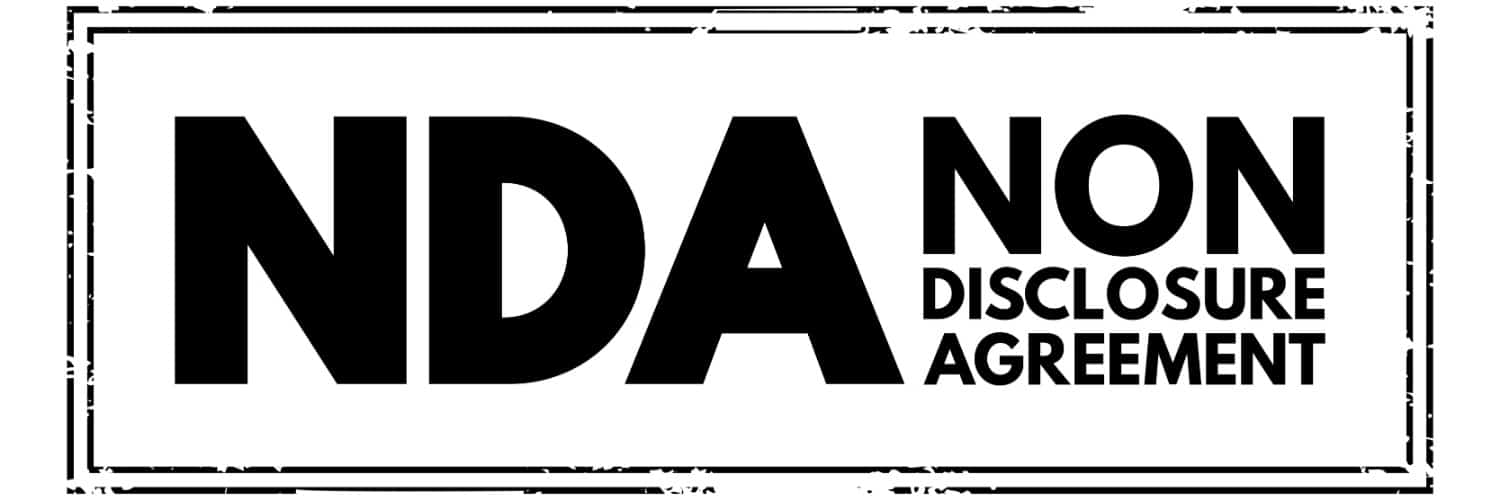Confidentiality Agreement in Brazil
A confidentiality agreement, also known as a non-disclosure agreement (NDA), is a legal contract between two parties where one party (the disclosing party) agrees to share confidential information with another party (the receiving party) and the receiving party agrees to keep the information confidential and not use it for any unauthorized purposes. The agreement sets the terms and conditions for the use and protection of confidential information and can help to prevent the unauthorized dissemination of sensitive information and protect the disclosing party’s interests. Confidentiality agreements are commonly used in business transactions, employment relationships, and partnerships.
How We Can Help You:
- Draft a confidentiality agreement for you to use in Brazil
- Review a confidentiality agreement provided by another party
- Advise you on confidentiality matters when doing business in Brazil
Are Confidentiality Agreements Common in Brazil?
Yes, confidentiality agreements are recognized and enforceable in Brazil. Brazil has a legal system that protects the confidentiality of information and trade secrets, and confidentiality agreements can be used to establish clear expectations and obligations with respect to the use and protection of confidential information. It is common for Brazilian companies to use confidentiality agreements in a variety of contexts, including in business transactions, employment relationships, and partnerships. To be enforceable in Brazil, confidentiality agreements must comply with Brazilian contract law and be executed in accordance with Brazilian legal requirements.
Common Clauses of Confidentiality Agreements in Brazil
The main clauses of a confidentiality agreement in Brazil typically include:
-
Definition of confidential information: This clause outlines what information is considered confidential and protected by the agreement.
-
Obligations of the receiving party: This clause sets out the obligations of the receiving party with respect to the use and protection of confidential information. This may include obligations to keep the information confidential, use the information only for specific purposes, and to return or destroy the information upon request.
-
Exclusions: This clause may outline certain exclusions from the agreement, such as information that is already known to the receiving party, information that is publicly available, or information that is independently developed by the receiving party without reference to the confidential information.
-
Term: This clause sets out the duration of the agreement and the period during which the receiving party is bound by its obligations.
-
Remedies: This clause sets out the remedies available to the disclosing party in the event of a breach of the agreement by the receiving party, such as injunctive relief, damages, and attorney’s fees.
-
Governing law: This clause sets out the governing law that will apply to the agreement and any disputes that may arise.
-
Dispute resolution: This clause sets out the process for resolving disputes that may arise under the agreement, such as arbitration or litigation.
Frequent Questions

A confidentiality agreement in Brazil, also known as a non-disclosure agreement (NDA), is a legal contract between two parties where one party agrees to share confidential information with another party and the receiving party agrees to keep the information confidential and not use it for any unauthorized purposes.
A confidentiality agreement in Brazil, also known as a non-disclosure agreement (NDA), is a legal contract between two parties where one party agrees to share confidential information with another party and the receiving party agrees to keep the information confidential and not use it for any unauthorized purposes.
Q: What are the main clauses of a confidentiality agreement in Brazil?
The main clauses of a confidentiality agreement in Brazil typically include: definition of confidential information, obligations of the receiving party, exclusions, term, remedies, governing law, and dispute resolution.
Q: Who should consider using a confidentiality agreement in Brazil?
Companies and individuals involved in business transactions, employment relationships, and partnerships in Brazil should consider using a confidentiality agreement to protect their confidential information and trade secrets.
Yes, confidentiality agreements are recognized and enforceable in Brazil. To be enforceable, the agreement must comply with Brazilian contract law and be executed in accordance with Brazilian legal requirements.
If the receiving party breaches the confidentiality agreement in Brazil, the disclosing party may seek remedies, such as injunctive relief, damages, and attorney’s fees, as outlined in the agreement. In some cases, the disclosing party may also have a right to seek legal action against the receiving party for the breach.


